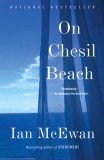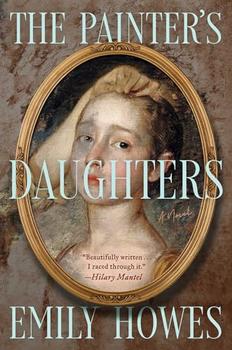Summary | Excerpt | Reading Guide | Reviews | Beyond the Book | Readalikes | Genres & Themes | Author Bio

Critics' Opinion:
Readers' Opinion:
First Published:
Jun 2007, 208 pages
Paperback:
Jun 2008, 224 pages
 Book Reviewed by:
Book Reviewed by:
BookBrowse Review Team
Buy This Book
Florence suspected that there was something profoundly wrong with her, that she had always been different, and that at last she was about to be exposed. Her problem, she thought, was greater, deeper, than straightforward physical disgust; her whole being was in revolt against a prospect of entanglement and flesh; her composure and essential happiness were about to be violated. She simply did not want to be “entered” or “penetrated.” Sex with Edward could not be the summation of her joy, but was the price she must pay for it.
She knew she should have spoken up long ago, as soon as he proposed, long before the visit to the sincere and soft–voiced vicar, and dinners with their respective parents, before the wedding guests were invited, the gift list devised and lodged with a department store, and the marquee and photographer hired, and all the other irreversible arrangements. But what could she have said, what possible terms could she have used when she could not have named the matter to herself? And she loved Edward, not with the hot, moist passion she had read about, but warmly, deeply, sometimes like a daughter, sometimes almost maternally. She loved cuddling him, and having his enormous arm around her shoulders, and being kissed by him, though she disliked his tongue in her mouth and had wordlessly made this clear. She thought he was original, unlike anyone she had ever met. He always had a paperback book, usually history, in his jacket pocket in case he found himself in a queue or a waiting room. He marked what he read with a pencil stub. He was virtually the only man Florence had met who did not smoke. None of his socks matched. He had only one tie, narrow, knitted, dark blue, which he wore nearly all the time with a white shirt. She adored his curious mind, his mild country accent, the huge strength in his hands, the unpredictable swerves and drifts of his conversation, his kindness to her, and the way his soft brown eyes, resting on her when she spoke, made her feel enveloped in a friendly cloud of love. At the age of twenty–two, she had no doubt that she wanted to spend the rest of her life with Edward Mayhew. How could she have dared risk losing him?
There was no one she could have talked to. Ruth, her sister, was too young, and her mother, perfectly wonderful in her way, was too intellectual, too brittle, an old–fashioned bluestocking. Whenever she confronted an intimate problem, she tended to adopt the public manner of the lecture hall, and use longer and longer words, and make references to books she thought everyone should have read. Only when the matter was safely bundled up in this way might she sometimes relax into kindliness, though that was rare, and even then you had no idea what advice you were receiving. Florence had some terrific friends from school and music college who posed the opposite problem: they adored intimate talk and reveled in each other’s problems. They all knew each other, and were too eager with their phone calls and letters. She could not trust them with a secret, nor did she blame them, for she was part of the group. She would not have trusted herself. She was alone with a problem she did not know how to begin to address, and all she had in the way of wisdom was her paperback guide. On its garish red covers were portrayed two smiling bug–eyed matchstick figures holding hands, drawn clumsily in white chalk, as though by an innocent child.
***
They ate the melon in less than two minutes while the lads, instead of waiting out in the corridor, stood well back, near the door, fingering their bow ties and tight collars and fiddling with their cuffs. Their blank expressions did not change as they observed Edward offer Florence, with an ironic flourish, his glazed cherry. Playfully, she sucked it from his fingers and held his gaze as she deliberately chewed, letting him see her tongue, conscious that in flirting with him like this she would be making matters worse for herself. She should not start what she could not sustain, but pleasing him in any way she could was helpful: it made her feel less than entirely useless. If only eating a sticky cherry was all that was required.
Excerpted from On Chesil Beach by Ian McEwan Copyright © 2007 by Ian McEwan. Excerpted by permission of Nan A. Talese, a division of Random House, Inc. All rights reserved. No part of this excerpt may be reproduced or reprinted without permission in writing from the publisher.




Judge a man by his questions rather than by his answers.
Click Here to find out who said this, as well as discovering other famous literary quotes!
Your guide toexceptional books
BookBrowse seeks out and recommends the best in contemporary fiction and nonfiction—books that not only engage and entertain but also deepen our understanding of ourselves and the world around us.